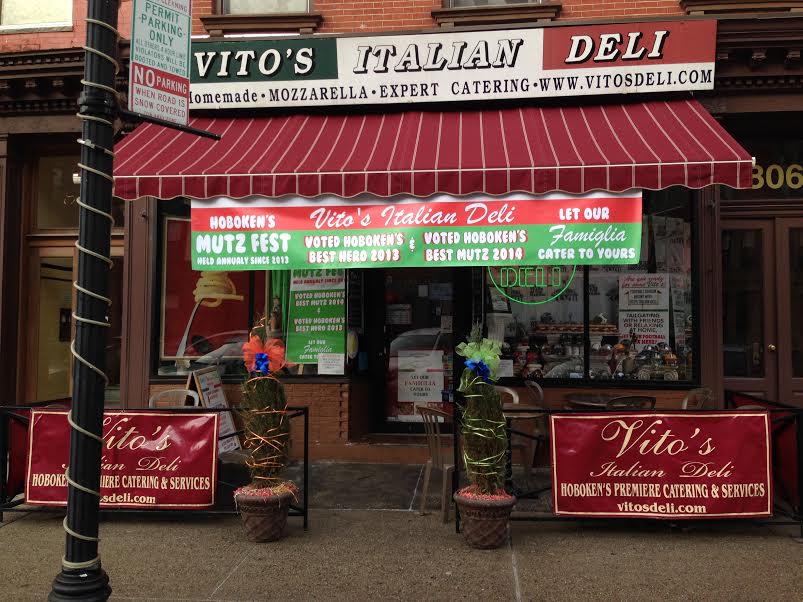New Jersey has a certain way about it. From food to travel, down to the way locals talk, the Garden State remains unique. While most places in the US claim a certain twang or lilt to their speech, NJ seems to have developed a language all its own, with good reason. We’ll give you a hint: It has a lot to do with the people who immigrated to our beautiful state.
Accent — Noun. A distinctive mode of pronunciation of a language, especially one associated with a particular nation, locality or social class.
Example: “Can I get a extra mutz on my sandwich, please?”
More from Best of NJ
How Did it Happen?
Middle America and the West Coast became keen to the Jersey accent through pop culture. Tony Soprano’s requests for “gabagool” were most likely met with a bit of confusion, but a lot of curiosity. The Jersey Shore cast’s explanation of Sunday dinner with “mutzadell” and gravy was probably equally as challenging for the rest of the country to comprehend.
While deli counter signs define these food items as capicola and mozzarella, in New Jersey the proper forms of these words – and others like ricotta (“ree-gout”) and proscuitto (“pru-shoot”) – don’t have the emotional attachment the jersey-formed ones do. Lingusistics experts say it all has to do with immigration.
“About 80 percent of Italian-Americans are of southern Italian descent,” Fred Gardaphe, a professor of Italian-American studies at Queens College, explained to Atlas Obscura.
“Ships from Palermo went to New Orleans and the ships from Genoa and Naples went to New York,” he says.
They spread out from there, finding clusters of their countrymen in places like New York City, Long Island, New Jersey and Philadelphia. In an effort to hold on to their heritage, the older transplants spoke their region’s dialect when in the company of their countrymen and attempted to turn those words into English when acclimating to American society.
“The truth is that there isn’t a single New Jersey accent,” says Montclair State University linguistics professor Jonathan Howell.
“In fact, NJ is among the most linguistically diverse states in the country, which is something we can certainly take pride in.”
Immigration has a lot to do with that diversity.
Coming to America
“The largest wave of Italian immigrants came to NJ (and nearby places like NYC, Long Island, Rhode Island, Connecticut and Philadelphia) at a time when there was a lot of linguistic diversity in Italy. Italian immigrants came from the south of Italy, where it was common to leave off the final vowel in a word and to change voiceless consonants, like the k-sounds in capicol, to voiced consonants, like the g-sounds in gabagool.”
Maria Grazia Notarnicola, an Italian and humanities professor in a private NYC-area school, explained that the intertwining of the Italian language with English was created by immigrants as a method of communication. It was essential for their survival.

“Most of the Italians that came here and founded new lives in New York and New Jersey had to create their own language,” she explained. “Each community created their own language in order to understand each other. Yes, they could be all from Sicily but different towns in Sicily had different dialects. So when they arrived here, they couldn’t understand Americans or each other.”
A Bridge Between Words
In order to communicate about basic things, like food, they came up with a vocabulary that aided in communication and created a community. Along the way, some syllables got dropped, consonants swapped and vowels completely changed.
“Words were created. ‘Mutz’ became the way they all commonly agreed on how to ask for mozzarella. They weren’t allowed to speak Italian here, but didn’t know how to speak English. This was how they were able to forge a community amongst themselves.”
These immigrants often refused to teach their kids Italian, hoping they would become fluent English speakers. But the vocabulary of the families and community stuck. And it’s what we have today.
So, in essence, New Jersey became an amalgamation of various places in Italy. With different regions adopting their expat’s hometown dialect, a universal New Jersey accent and vocabulary was created.
Of course, that vocabulary nods to the Italian cultural history and migration to America. So, when we order that “sangwich” with fresh “mutz” and “pru-shoot,” it means a lot more than, “Hey, I’m hungry.” It’s history.
Here are some other New Jersey vocabulary words you likely won’t hear anywhere else:
Pasta Fagioli = Pasta Fuh-zool
Capicola = Gabagool
Mozzarella = Mutz-a-dell
Ricotta = Ree-gout
Proscuitto = Pro-shoot
Manicotti = Man-uh-gut
Calzone (cal-TSO-nay) = Cal-zone
Hero (Top) Feature Image: © georgerudy / Adobe Stock
Additional Images (in Order) Courtesy:
Carly Weaver / Best of NJ
Vito’s Deli / Facebook














